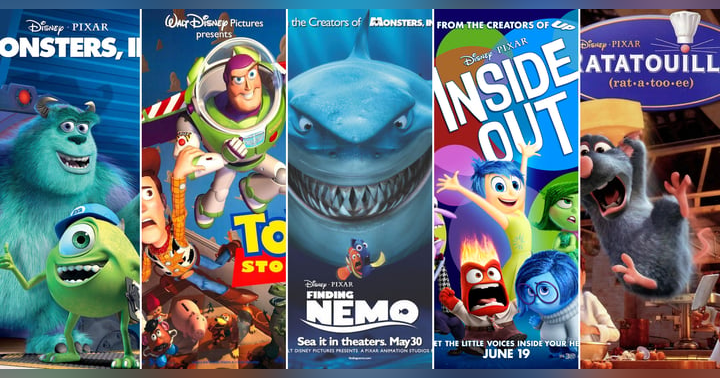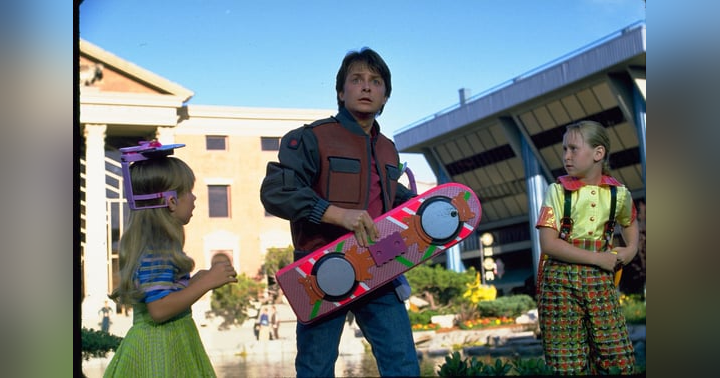The Evolution of Terror: Exploring the Alien Movie Franchise

Few movie franchises have been as influential and enduring as the Alien movie franchise. Born in 1979 with Ridley Scott’s Alien, this series has terrified audiences for decades, blending intense sci-fi thrills with haunting horror. The films explore both the deep fears of the unknown and the human struggle for survival in the cold, vastness of space. But the franchise isn’t just about jump scares and face-hugging monsters; it also provides a commentary on corporate greed, human resilience, and the overwhelming terror of the cosmos.
In this post, we’ll examine how the Alien movie franchise has evolved, not just in its storytelling but in its themes, aesthetics, and cultural significance.
Alien (1979) – Where It All Began
When Alien first hit theatres, it revolutionised how horror and science fiction could be combined. Ridley Scott's direction, H.R. Giger’s grotesque designs, and Sigourney Weaver's breakout performance as Ellen Ripley cemented Alien as one of the most iconic films in cinema history. The film was a slow burn, relying heavily on tension and atmosphere. The sense of isolation and claustrophobia aboard the Nostromo mining ship made audiences feel trapped along with the crew.
At the heart of the film is the creature itself: the Xenomorph. Unlike other movie monsters of its time, the Xenomorph wasn’t just a predator—it was a symbol of pure, primal terror. Giger's biomechanical design is nightmarish, bringing a sense of dread that never really leaves the viewer. Every element of the Xenomorph, from its acid blood to its relentless pursuit of its prey, was crafted to embody our deepest fears.
But Alien didn’t just create a monster—it created a heroine. Ellen Ripley, played by Sigourney Weaver, became a groundbreaking character, subverting traditional gender roles in cinema. Instead of being a helpless victim, she stood as the ultimate survivor, battling not just the alien but the oppressive corporate forces that sacrificed her crew. Ripley’s character would become central to the franchise, offering a human face in an increasingly bleak universe.
Aliens (1986) – Bigger, Bolder, and Louder
James Cameron took over the reins for Aliens in 1986, shifting gears from horror to action without losing the tension that made the original so terrifying. Instead of a lone Xenomorph stalking the crew, Cameron gave us an entire hive led by the terrifying Alien Queen. If Alien was a haunted house in space, Aliens was an all-out war, complete with heavy artillery, explosions, and Marines. Cameron’s direction turned Ripley from a survivor into a warrior, solidifying her status as one of the greatest action heroes in film history.
The themes of corporate exploitation were expanded upon in Aliens. Weyland-Yutani, the corporation behind the original mission, is revealed to be even more sinister than before, willing to risk countless lives to bring back a Xenomorph for profit. The marines sent to investigate the colony are little more than pawns in a larger game.
However, amidst the gunfights and explosions, Cameron maintained the emotional core of Ripley’s journey. Her relationship with the orphaned Newt provided the film with a maternal aspect, contrasting the cold, calculating nature of the Alien Queen. This emotional connection grounded the film, making the stakes feel more personal and heightening the tension as Ripley fought to protect Newt from the same creature that had terrorised her in the past.
Alien 3 (1992) and Alien: Resurrection (1997) – A Struggle for Identity
Alien 3, directed by David Fincher, is the most controversial entry in the franchise. Fans and critics were divided over the film’s bleak tone and the decision to kill off key characters from Aliens before the movie even begins. Fincher’s Alien 3 returned to the horror roots of the first film, trading Cameron’s bombast for a more introspective and moody atmosphere. Set in a prison colony, the film explored themes of faith, redemption, and sacrifice, but its troubled production left it feeling disjointed.
Ripley, now emotionally scarred and exhausted, faces her greatest challenge yet. She’s carrying a Xenomorph embryo inside her, which forces her to confront both her own mortality and the persistent threat of the alien species. In the end, her decision to sacrifice herself rather than allow the corporation to exploit the alien highlights the series' core conflict: the clash between humanity's survival instincts and the destructive greed of corporate interests.
By the time Alien: Resurrection came around in 1997, the franchise was losing its way. Directed by Jean-Pierre Jeunet, this fourth film is often considered the oddball of the series. Set 200 years after Ripley’s death, it brought her back as a clone with alien DNA, enhancing her abilities and distancing the character from her earlier, more human incarnation. While the film had some interesting visual elements and explored themes of identity and motherhood, it ultimately felt disconnected from the spirit of the original movies.
Prometheus (2012) and Alien: Covenant (2017) – Returning to Origins
Ridley Scott returned to the franchise with Prometheus in 2012, a prequel that sought to explore the origins of the Xenomorphs and the Engineers—an ancient race of beings responsible for creating life in the galaxy. Although marketed as a direct prequel to Alien, Prometheus took a more philosophical approach, asking questions about creation, existence, and humanity's place in the universe. The film divided audiences—some appreciated its ambition, while others were frustrated by its vague connections to the original films.
Alien: Covenant in 2017 served as both a sequel to Prometheus and a return to the more familiar horror elements of the original Alien. Scott once again explored the theme of creation, this time through the android David, who becomes obsessed with perfecting the Xenomorph species. The film offered a more traditional Alien experience, complete with claustrophobic spaceships, face huggers, and brutal alien attacks. However, it also continued the existential themes introduced in Prometheus, making it a hybrid of the franchise’s past and future.
The Legacy of the Alien Movie Franchise
The Alien movie franchise has left an indelible mark on both the sci-fi and horror genres. Its influence can be seen in everything from video games to novels to other films like Event Horizon and Sunshine. The Xenomorph has become an iconic figure in pop culture, embodying the terror of the unknown and the dangers of unchecked ambition.
What makes the franchise truly stand out is its ability to evolve. From the slow, methodical terror of Alien to the action-packed intensity of Aliens, and from the philosophical musings of Prometheus to the visceral horror of Alien: Covenant, each film offers something new while still staying true to the core themes of survival, fear, and the perils of corporate greed. Whether you're a fan of the original horror or the more action-oriented sequels, there's no denying that the Alien movie franchise has earned its place in cinematic history.
As the franchise continues to expand with potential future projects, it's clear that the Xenomorph's reign of terror is far from over. And if history is any indication, the Alien franchise will keep evolving, just like its monstrous antagonist, to terrify and captivate new generations of fans.















